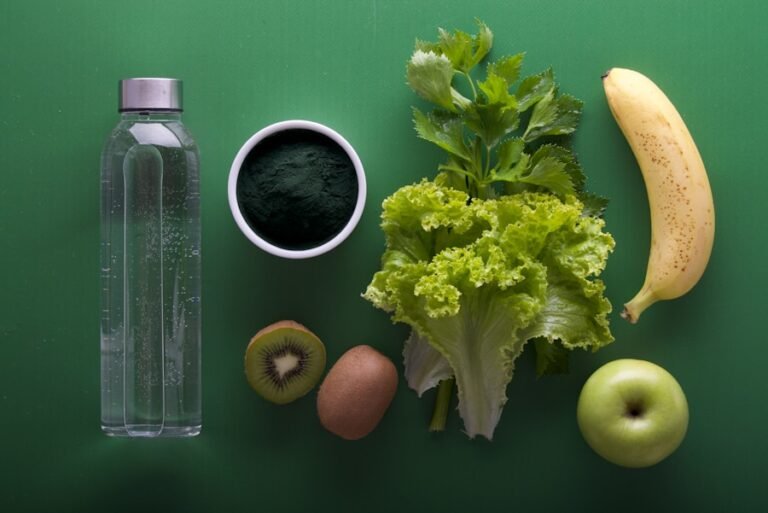Say Goodbye to Itchiness: Natural Home Remedies for Skin Irritation
Skin irritation can be a frustrating and uncomfortable experience for many people. It can manifest in various forms, including redness, itching, burning, and swelling. There are several causes of skin irritation, including allergic reactions, exposure to irritants, insect bites, and underlying skin conditions such as eczema or psoriasis. Allergic reactions can be triggered by certain foods, medications, or environmental factors, while irritants such as harsh chemicals in skincare products or detergents can also lead to skin irritation. Insect bites from mosquitoes, bees, or other pests can cause localized skin irritation, often accompanied by itching and redness. Additionally, individuals with sensitive skin or those with underlying skin conditions may be more prone to experiencing skin irritation.
The symptoms of skin irritation can vary depending on the cause and severity of the condition. Common symptoms include redness, itching, burning, swelling, and dryness. In some cases, skin irritation may also be accompanied by the formation of blisters or hives. It is important to identify the underlying cause of skin irritation in order to effectively address the issue and provide relief. Seeking medical advice from a dermatologist or healthcare professional can help determine the cause of skin irritation and develop a suitable treatment plan.
The Power of Natural Remedies: Benefits of Using Home Remedies for Skin Irritation
Natural remedies have been used for centuries to address various health and wellness concerns, including skin irritation. Home remedies offer a gentle and holistic approach to soothing irritated skin without the use of harsh chemicals or synthetic ingredients. One of the key benefits of using natural remedies for skin irritation is the reduced risk of adverse reactions or side effects, making them suitable for individuals with sensitive skin or allergies. Additionally, many natural remedies are readily available and affordable, making them accessible to a wide range of individuals.
Another advantage of using home remedies for skin irritation is the potential for long-term benefits. Natural ingredients such as aloe vera, oatmeal, honey, and essential oils contain properties that can help nourish and protect the skin, promoting overall skin health. Furthermore, natural remedies often have multiple uses and can be incorporated into a regular skincare routine to maintain healthy and radiant skin. By harnessing the power of nature, individuals can address skin irritation in a gentle and sustainable manner, promoting overall well-being and comfort.
Soothing Aloe Vera: How to Use Aloe Vera Gel to Calm Itchy Skin
Aloe vera is a popular natural remedy known for its soothing and healing properties, making it an excellent choice for addressing skin irritation. The gel extracted from the leaves of the aloe vera plant contains anti-inflammatory and moisturizing compounds that can help calm itchy and irritated skin. To use aloe vera gel for skin irritation, simply apply a thin layer of the gel directly onto the affected area and gently massage it into the skin. Aloe vera gel can be used multiple times throughout the day to provide relief from itching and discomfort. For individuals with sensitive skin, it is important to perform a patch test before using aloe vera gel to ensure compatibility and minimize the risk of adverse reactions.
In addition to its topical application, aloe vera can also be used to create a soothing and hydrating face mask. By combining aloe vera gel with other natural ingredients such as honey, yogurt, or cucumber, individuals can create a nourishing mask to help calm and rejuvenate irritated skin. Regular use of aloe vera gel can help promote overall skin health and reduce the frequency and severity of skin irritation. It is important to choose high-quality, pure aloe vera gel to ensure maximum benefits and effectiveness.
Oatmeal Magic: Creating an Oatmeal Bath for Relief from Skin Irritation
Oatmeal is a versatile and effective natural remedy for soothing skin irritation and providing relief from itching and inflammation. The soothing properties of oatmeal can help calm irritated skin and restore its natural barrier function. To create an oatmeal bath for relief from skin irritation, simply grind a cup of plain, unflavored oatmeal into a fine powder using a blender or food processor. Then, add the oatmeal powder to a warm bath and soak in the water for 15-20 minutes. The oatmeal bath can help reduce itching and redness, providing immediate relief and comfort.
Alternatively, individuals can create a homemade oatmeal paste to apply directly to the affected area. By mixing oatmeal with water to form a thick paste, individuals can create a soothing and hydrating treatment for irritated skin. The oatmeal paste can be applied to the skin and left on for 10-15 minutes before rinsing off with warm water. Regular use of oatmeal-based treatments can help alleviate skin irritation and promote overall skin health. It is important to choose plain, unflavored oatmeal without added sugars or flavorings for optimal results.
Cooling Cucumber: Using Cucumber Slices or Juice to Reduce Itchiness
Cucumber is a refreshing and hydrating natural remedy that can help reduce itchiness and inflammation associated with skin irritation. The high water content of cucumber makes it an excellent choice for soothing and cooling the skin, providing relief from discomfort. To use cucumber for reducing itchiness, individuals can place chilled cucumber slices directly onto the affected area and leave them on for 10-15 minutes. The coolness of the cucumber slices can help alleviate itching and redness, providing immediate relief.
In addition to using cucumber slices, individuals can also extract cucumber juice to create a soothing skin tonic. By blending fresh cucumber and straining the juice, individuals can create a natural remedy to reduce itchiness and promote skin hydration. The cucumber juice can be applied to the skin using a cotton ball or spray bottle and left to dry. Regular use of cucumber-based treatments can help calm irritated skin and maintain its natural balance. It is important to choose organic cucumbers and wash them thoroughly before use to ensure purity and safety.
Healing Honey: Harnessing the Antibacterial and Anti-inflammatory Properties of Honey for Skin Irritation
Honey is a natural ingredient with powerful antibacterial and anti-inflammatory properties, making it an effective remedy for addressing skin irritation. The unique composition of honey, including enzymes, antioxidants, and amino acids, can help promote healing and reduce inflammation. To use honey for skin irritation, individuals can apply a thin layer of raw, unprocessed honey directly onto the affected area and leave it on for 15-20 minutes before rinsing off with warm water. The antibacterial properties of honey can help prevent infection and promote the healing of irritated skin.
In addition to its topical application, honey can also be combined with other natural ingredients to create a nourishing and hydrating face mask. By mixing honey with ingredients such as yogurt, avocado, or aloe vera, individuals can create a soothing treatment to calm and rejuvenate irritated skin. Regular use of honey-based treatments can help reduce the frequency and severity of skin irritation, promoting overall skin health. It is important to choose high-quality, raw honey to ensure maximum benefits and effectiveness.
Calming Chamomile: Making a Chamomile Tea Compress for Soothing Irritated Skin
Chamomile is a gentle and soothing herb that has been used for centuries to address various skin concerns, including irritation and inflammation. The anti-inflammatory and antioxidant properties of chamomile make it an excellent choice for calming irritated skin and providing relief from discomfort. To make a chamomile tea compress for soothing irritated skin, individuals can steep chamomile tea bags in hot water and allow them to cool. Once the tea bags are cool to the touch, they can be placed onto the affected area and left on for 10-15 minutes. The chamomile tea compress can help reduce redness and swelling, providing immediate relief.
Alternatively, individuals can create a chamomile tea spray by brewing chamomile tea and allowing it to cool. The chamomile tea can then be transferred to a spray bottle and misted onto the skin for a refreshing and calming effect. Regular use of chamomile-based treatments can help alleviate skin irritation and promote overall skin health. It is important to choose high-quality, organic chamomile tea to ensure purity and potency.
Essential Oils for Skin Irritation: Exploring the Use of Lavender, Tea Tree, and Peppermint Oils
Essential oils are concentrated plant extracts that contain powerful therapeutic properties, making them valuable remedies for addressing skin irritation. Lavender, tea tree, and peppermint oils are particularly beneficial for soothing irritated skin and reducing inflammation. Lavender oil is known for its calming and healing properties, making it an excellent choice for addressing skin irritation. Tea tree oil possesses strong antibacterial and antifungal properties, making it effective for treating various skin conditions, including irritation. Peppermint oil has a cooling and refreshing effect on the skin, providing relief from itching and discomfort.
To use essential oils for skin irritation, individuals can dilute a few drops of the desired oil in a carrier oil such as coconut, jojoba, or almond oil, and apply the mixture to the affected area. It is important to perform a patch test before using essential oils to ensure compatibility and minimize the risk of adverse reactions. Additionally, essential oils can be added to a warm bath or diffused in the air to promote relaxation and reduce stress, which can contribute to skin irritation. By harnessing the power of essential oils, individuals can address skin irritation in a natural and holistic manner, promoting overall well-being and comfort.
Dietary Changes for Healthy Skin: Incorporating Anti-inflammatory Foods to Reduce Skin Irritation
In addition to topical remedies, dietary changes can play a significant role in reducing skin irritation and promoting overall skin health. Certain foods possess anti-inflammatory properties and can help reduce inflammation and irritation within the body. Incorporating a variety of anti-inflammatory foods such as fatty fish, leafy greens, berries, nuts, and seeds into the diet can help support skin health and reduce the frequency and severity of skin irritation. Omega-3 fatty acids found in fatty fish such as salmon and mackerel can help reduce inflammation and promote skin hydration. Leafy greens such as spinach and kale are rich in antioxidants and vitamins that can help protect the skin from damage and promote healing.
Berries such as blueberries, strawberries, and raspberries are packed with antioxidants that can help reduce inflammation and support overall skin health. Nuts and seeds such as almonds, walnuts, and flaxseeds contain essential nutrients that can help nourish the skin and reduce irritation. By incorporating a variety of anti-inflammatory foods into the diet, individuals can support their skin from the inside out, promoting overall well-being and comfort. It is important to consult with a healthcare professional or nutritionist before making significant dietary changes to ensure they are suitable for individual needs and health conditions.
Preventing Future Irritation: Tips for Maintaining Healthy and Irritation-Free Skin
In addition to addressing existing skin irritation, it is important to take proactive measures to prevent future occurrences and maintain healthy, irritation-free skin. One of the key strategies for preventing skin irritation is to identify and avoid potential triggers, such as allergens, irritants, and harsh chemicals in skincare products. Individuals with sensitive skin or underlying skin conditions should opt for gentle, fragrance-free skincare products and detergents to minimize the risk of irritation. Additionally, wearing protective clothing and using sunscreen can help shield the skin from environmental factors such as UV rays and pollution, reducing the risk of irritation.
Maintaining proper hydration is essential for supporting skin health and reducing the likelihood of irritation. Drinking an adequate amount of water and using moisturizers can help keep the skin hydrated and supple, reducing the risk of dryness and irritation. Furthermore, practicing good hygiene, including regular bathing and cleansing, can help remove dirt, sweat, and bacteria from the skin, reducing the risk of irritation and infection. By adopting a proactive approach to skincare and overall health, individuals can minimize the risk of skin irritation and maintain healthy, radiant skin.
In conclusion, skin irritation can be a challenging and uncomfortable experience for many individuals, but there are numerous natural remedies and strategies that can help provide relief and promote overall skin health. Understanding the causes and symptoms of skin irritation is essential for identifying the underlying issue and developing an effective treatment plan. By harnessing the power of natural remedies such as aloe vera, oatmeal, honey, and essential oils, individuals can address skin irritation in a gentle and holistic manner. Additionally, incorporating anti-inflammatory foods into the diet and adopting proactive skincare practices can help prevent future irritation and maintain healthy, irritation-free skin. With the right knowledge and approach, individuals can effectively address skin irritation and promote overall well-being and comfort.






